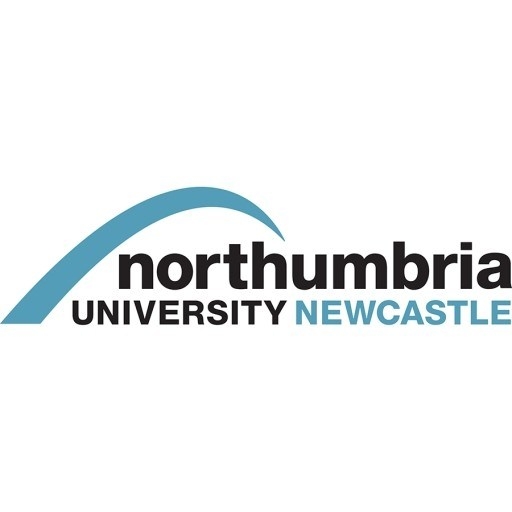Photos of university / #uniofstandrews
The BA in Banking and Finance at the University of St Andrews offers students a comprehensive understanding of the core principles and contemporary practices within the financial sector. Designed to equip students with both theoretical knowledge and practical skills, this programme explores a wide range of topics including financial markets, investment analysis, banking operations, corporate finance, and risk management. Throughout the course, students are encouraged to develop analytical thinking, quantitative skills, and ethical awareness essential for a successful career in the finance industry. The programme combines rigorous academic coursework with opportunities for real-world application through case studies, internships, and guest lectures from industry professionals. By studying at one of the world’s leading universities, students benefit from distinguished faculty expertise and access to cutting-edge research in finance and economics. The curriculum emphasizes the importance of global financial systems and regulatory environments, preparing graduates to navigate complex economic landscapes effectively. Students also have the option to tailor their studies via elective modules, enabling specialization in areas such as investment banking, financial technology, or monetary policy. The programme promotes an international perspective, fostering cultural awareness and understanding of global financial challenges. Graduates from the BA in Banking and Finance are well-equipped to pursue careers in banking, asset management, financial consultancy, or to continue their studies at postgraduate levels. With a strong emphasis on both academic excellence and practical experience, this programme aims to develop highly capable professionals ready to make impactful contributions to the financial sector worldwide.
Course structure
| Semester 1 | Semester 2 |
| Banking and Finance | Investments and Portfolio Management |
| Research Methods in Finance (Econometrics 1) |
Research Methods in Banking and Finance (Econometrics 2) |
| Option 1 (See sample list below.) | Option 2 (See sample list below.) |
| Whole Year Module | |
| Individual Dissertation (including research methods preparation) | |
| Sample list of Option modules: | |
|
Alternative Investment * Please note: this list is subject to change on an annual basis. |
|
Entry requirements
The MSc Banking and Finance would be suitable for students possessing appropriate entry qualifications from a wide range of business disciplines such as finance, accounting and economics - specifically, academic programmes that provide their students with strong quantitative skills. The programme will also be attractive to academically-qualified students with relevant industry experience who intend to enhance further their knowledge and skills in banking or finance related issues.
Applicants are expected to possess a first degree at 2.1 Honours or better or its equivalent. For instance, acceptable grades according to the US system would be B+ or better. Applicants are not required to take a GMAT or GRE test or to have studied any additional languages. Non-native English speaker applicants are required to have an IELTS score of 7 with no element lower than 6.5.
Applicants with business experience are welcome and we will take work experience into account in the evaluation of applications. Please note that, where applicants have experience, we would recommend an additional work reference is provided (in addition to the two academic references normally required for application to our programmes) to include information about any business related experience.
Postgraduate candidates will be expected to hold a Russian Bachelor’s degree - Diplom Bakalavra/ Bakalavr Diploma or a Specialist Degree issued by the Russian Federation - Specialist Diploma / Diplom Specialista. In either case, students should have completed their degree with an average mark (grade) of 4 or higher on the Russian 5-point marking scale. Students with higher level qualifications such as Magistr, the Kandidat Nauk, would also be considered for postgraduate study.
School of Management International Scholarships Scheme
There are five scholarships worth £2,000 each in the International Scholarships Scheme. Each is awarded as a discount in tuition fees and is for one year only. Scholarships cannot be deferred to a later year.
Recent Graduate Discount
The University of St Andrews offers a 10% reduction in postgraduate tuition fees for students who have graduated during the last three years and are now starting a postgraduate programme.
Accommodation Award
For all new postgraduate students, based on financial need. This scholarship can only be used to reduce the cost of University accommodation. Postgraduate awards of £3,000 per annum for the first 2 years of study will be available from September 2016. The award will be means-tested, based on financial need. In order to be eligible, applicants must have a gross annual household income of under £34,000 or a gross annual personal income of under £25,000.
Thomas and Margaret Roddan Trust Bursary
For all new and current postgraduate students; based on financial need and academic excellence.
Chevening Scholarships
Chevening Scholarships are the UK government's global scholarship programme, funded by the Foreign and Commonwealth Office (FCO) and partner organisations. The Scholarships are awarded to outstanding scholars with leadership potential. Awards are typically for a one-year Master’s degree.
Commonwealth Scholarships: Developing Countries
The Commonwealth Scholarship Commission offers opportunities to citizens of Developing Commonwealth countries to study in the UK, as part of the UK's contribution to the international Commonwealth Scholarship and Fellowship Plan. These awards are funded by the Department for International Development.
The BSc in Banking and Finance at the University of St Andrews offers students a comprehensive understanding of the financial sector, with a focus on banking operations, financial markets, and risk management. The programme is designed to equip students with a solid foundation in economic theory, quantitative methods, and practical skills relevant to the banking industry. Throughout the course, students explore topics such as the functioning of financial institutions, the role of central banks, financial regulation, and the principles of investment and corporate finance. The curriculum combines core modules with optional subjects, allowing students to tailor their studies according to their interests and career aspirations in areas like asset management, financial analysis, or banking operations.
Students benefit from an academically rigorous environment that fosters analytical thinking and problem-solving abilities. The programme is delivered through a mix of lectures, seminars, workshops, and practical sessions, often incorporating case studies and real-world applications to enhance understanding. The University of St Andrews promotes a strong emphasis on research-led teaching, ensuring that students are exposed to the latest developments and debates in the field of banking and finance.
The programme also provides students with opportunities for practical experience, such as internships and industry projects, to bridge the gap between academic knowledge and professional practice. Students are encouraged to engage with finance-related societies and networks on campus, further enriching their educational experience and professional development. The course prepares graduates for careers in banking, financial services, investment analysis, and related sectors, offering a solid platform for continued postgraduate study in finance, economics, or business. Graduates of the programme are recognized for their quantitative skills, critical thinking, and understanding of global financial systems, making them competitive in the evolving financial industry.
University of St Andrews supports students through dedicated academic advising and career guidance services. The programme's strong theoretical underpinning combined with practical insights ensures that graduates are well-equipped to meet the demands of today’s financial markets. Overall, the BSc in Banking and Finance at St Andrews aims to develop proficient, adaptable, and ethically responsible finance professionals ready to contribute to the global banking sector and beyond.








